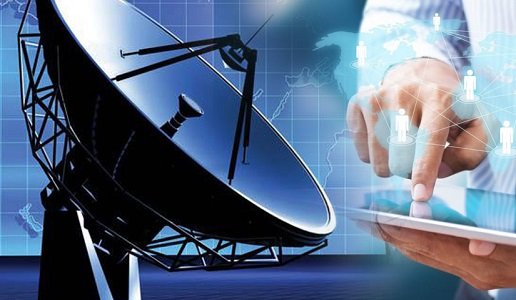School of Electronics & Communication Engineering
INTRODUCTION TO ECE
The department of Electronics and Communication Engineering was established in the year 2006 with an annual intake of 60 students which was enhanced to120 from the academic session 2009 − 2010.Since inception; the department is committed to build professional engineers. Along with regular course work, the students are groomed to develop confidence, soft skill, personality and practical approach to meet real time challenges. Looking to the present need of the professional world, emphasis is given to both software simulation and hardware implementation in advanced state of the art laboratories. While the Basic Electronics and Circuits Laboratories are aimed at building strong technical foundation, the students are exposed to advanced communication techniques through various Communication Engineering, Digital Signal Processing and Microwave Engineering laboratories.

The Microprocessor and Microcontroller Lab and the VLSI labs open the door to build carrier in the field of Embedded System and VLSI technology. Students are encouraged to do real time projects under the guidance of competent faculty members to reinforce technical competency. Value added courses are provided to the students to bridge any gap between industry and institution. A team of experienced as well as dedicated young faculty members are committed to achieve the goal. The department deals with digital logic, microprocessor, digital signal processing, communication engineering, design and simulation, VLSI and project labs. All these labs are equipped with sophisticated instruments and trainer kits, most of which are custom designed to facilitate better demonstration and easier understanding of the students.
Programs Offered...
Under the umbrella of School of Electronics & Communication Engineering, following elite set of programs are offered to the students.
- 4 Years Degree Program B.Tech in Electronics & Communication Engineering(30)
- 4 Years Degree Program B.Tech in Electronics & Computer Engineering(30)
- 2 Years Master Degree Program M.Tech in AIML(18)
Our Vision...
Electronics and Communication Engineering department endeavours to produce electronics and communication engineering graduates empowered with techno-managerial competency and values to undertake personal, societal as well as national growth and become a responsible citizen of the nation.
Our Mission...
- To build strong infrastructure and competent manpower required to impart technical education in pace with the changing world.
- To offer real world experience to students for promoting professionalism.
- To provide need based training and value added courses to enhance skill and competency of students as required for employment, entrepreneurship and higher studies.
- To conduct various programmes to build ethical values, team spirit, managerial skill and societal responsibilities among students.
Program Objectives & Outcomes
Program Educational Objectives(PEOs)
PEO1:
To build up academic starting point that draws them up for professional careers/ elevated studies in the discipline of Electronics and Communication Engineering.
PEO2:
To imbibe life long quest in the graduates for advanced learning leading to higher studies and research.
PEO3:
To make use of their knowledge, expertise and expedients to sketch, innovate and develop novel technology and to discover productive and innovative solutions to engineering issues in a multidisciplinary work environments.
PEO4:
To develop vantage points in lifelong learning, applying and modifying new propositions and technologies as their field progresses.
PEO5:
To inculcate leadership qualities and to be effective communicators to work efficiently with manifold teams, promote and practice appropriate ethical practices.
Program Outcomes(POs)
PO1: (Engineering knowledge)
Apply the knowledge of mathematics, science, engineering fundamentals, and engineering. specialization to the solution of complex engineering problems.
PO2: (Problem analysis)
Identify, formulate, research literature, and analyze engineering problems to arrive at substantiated conclusions using first principles of mathematics, natural, and engineering sciences.
PO3: (Design/development of solutions)
Design solutions for complex engineering problems and design system components, processes to meet the specifications with consideration for public health and safety, and the cultural, societal, and environmental considerations.
PO4: (Conduct investigations of complex problems)
Use research-based knowledge including design of experiments, analysis, and interpretation of data, and synthesis of the information to provide valid conclusions.
PO5: (Modern tool usage)
Create, select, and apply appropriate techniques, resources, and modern engineering and IT tools including prediction and modeling to complex engineering activities with an understanding of the limitations.
PO6: (The engineer and society)
Apply reasoning informed by the contextual knowledge to assess societal, health, safety, legal, and cultural issues and the consequent responsibilities relevant to the professional engineering practice.
PO7: (Environment and sustainability)
Understand the impact of the professional engineering solutions in societal and environmental contexts, and demonstrate the knowledge of, and need for sustainable development.
PO8: (Ethics)
Apply ethical principles and commit to professional ethics and responsibilities and norms of the engineering practice.
PO9: (Individual and teamwork)
Function effectively as an individual, and as a member or leader in teams, and in multidisciplinary settings.
PO10: (Communication)
Communicate effectively with the engineering community and with society at large. Be able to comprehend and write effective reports documentation. Make effective presentations, and give and receive clear instructions.
PO11: (Project management and finance)
Demonstrate knowledge and understanding of engineering and management principles and apply these to one’s own work, as a member and leader in a team. Manage projects in multidisciplinary environments.
PO12: (Life-long learning)
Recognize the need for, and have the preparation and ability to engage in independent and life-long learning in the broadest context of technological change.
Program Specific Outcomes(PSOs)
PSO1:
To put in science, engineering and mathematics through distinctive and intrinsic calculus to fix multiplex Electronics and Communication Engineering issues.
PSO2:
To corroborate expertise in use of software and hardware that is required to implement the electronics and communication vocatio

